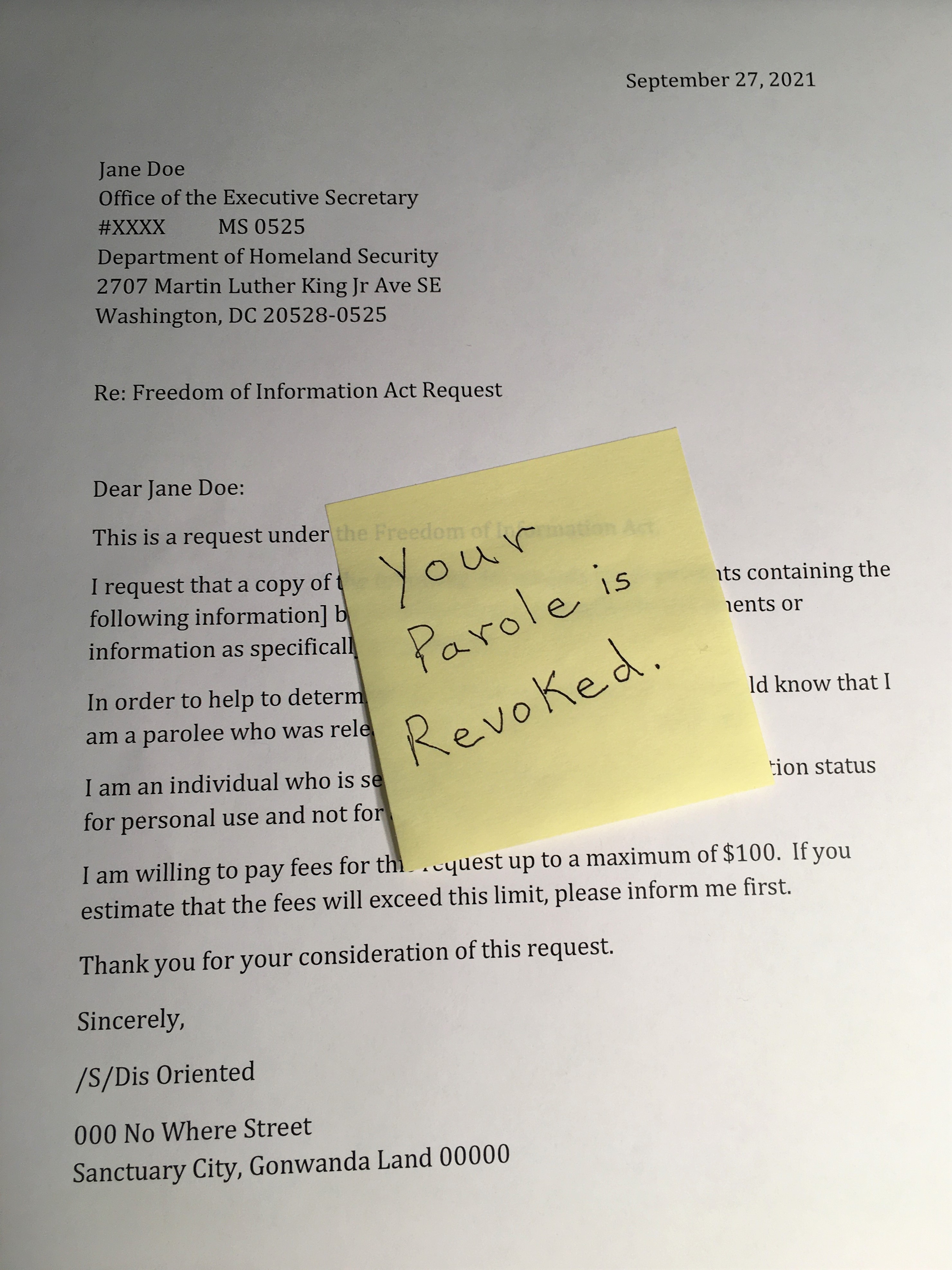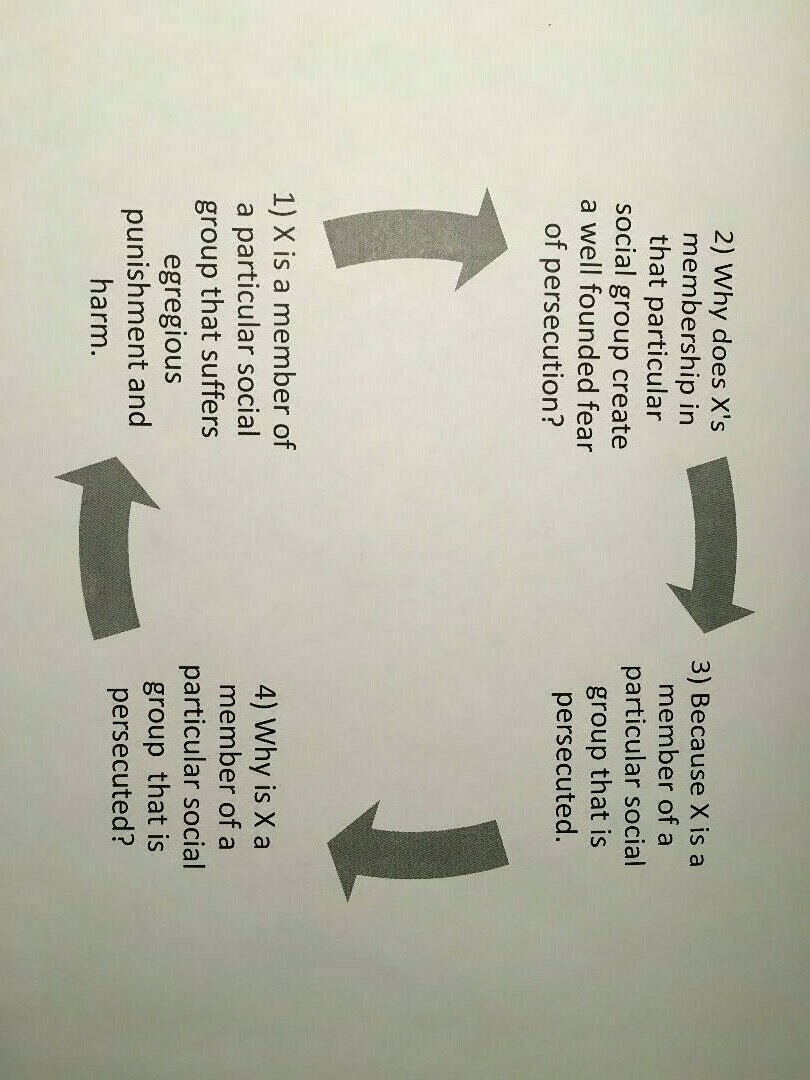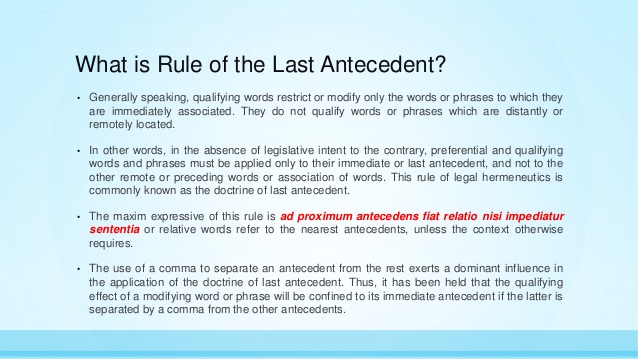Sufficiency of a Defective NTA to Establish Jurisdiction and Revoke Parole Status

The United States Supreme Court published two decisions in which it determined that:
- Service of a Notice to Appear that does not contain the time and place of initial hearing does not trigger the stop time rule under section 240A(d)(1) of the Act; and
- Service of a Notice to Appear that does not contain the time and place of initial hearing cannot be perfected by subsequent service of notice containing the missing information (i.e. time and place of the initial hearing).
See Pereira v. Sessions, 585 U. S. ___ (2018) and Niz-Chavez v. Garland, 593 U. S. ____ (2021) No. 19–863 April 29, 2021, respectively.
Is a defective Notice to Appear sufficient to establish jurisdiction of an Immigration Judge and revoke parole status?
Lawful Admission of a Refugee as a Permanent Resident and the Aggravated Felony Bar Under 212(h)(2) of the Immigration and Nationality Act

The Board of Immigration Appeals (“BIA”) persuaded the Eighth Circuit Court of Appeal to defer to its holdings in Matter of E.W. Rodriguez, 25 I&N Dec. 784 (BIA 2012) and Matter of Koljenovic, 25 I&N Dec. 219, at 220–23 (BIA 2010) that the term, “admitted,” in section 212(h)(2) of the Act was ambiguous and could encompass an adjustment of status within the United States. See Roberts v. Holder, 745 F.3d 928, at 932 (8th Cir. 2014) (per curiam) (i.e. by unanimous agreement).
Nevertheless, the BIA has doubled down on its flip flop in Matter of J-H-J-, 26 I&N Dec. 563 (BIA 2015).
What You Don’t Need to Know About Aggravated Felonies

For immigration purposes, the term, “Aggravated Felony,” is a term of art. It is defined under section 101(a)(43) of the Immigration and Nationality Act, as amended ("the Act"). If an alien in the United States is convicted of an aggravated felony such alien will become subject to removal and disqualified for common applications for relief from removal. See Section 237(a)(2)(A)(iii) of the Act.
Based on United States Supreme Court precedent case law, a seemingly counterintuitive hypothetical approach must be used to classify an offense as an aggravated felony. Moncrieffe v. Holder, 569 U.S. 184 (2013). The result of this hypothetical classification approach is that administrative and judicial decision makers don't need to know what the convicted person actually did to be judged guilty of a crime.
In other words, the real facts need not be known.
Compelling the Contrary Conclusion of Any Reasonable Adjudicator and the Last Resort
%20Bullet%20Holes.jpg)
Persuading an appellate court to Interpret evidence in a way that compels a decision maker to reach a contrary conclusion is a daunting task.
So . . . what about deferred action?
Circular Reasoning in the Context of Asylum Claims

Circular reasoning can be puzzling because, although it is generally known to be unreliable, it does not violate any rule of logic. In other words, circular reasoning is not illogical.
Circular reasoning is not reliable because the conclusion rests exclusively on the initial premise without admitting evidence from another source or other sources to justify the veracity of the initial premise as well as other premises involved in the closed circle of logic.
The Law Underlying Catch and Detain, Catch and Release, or Catch and Return

Failure to Advance to the Next Base on a Force Play
.jpg)
The score is tied. Runners are on the corners (i.e. runners at first base and third base) with two outs in the second half of the last inning.
The batter swings hitting the ball into the outfield for a base hit which allows the runner on third base to reach home plate apparently breaking the tie and putting the home team ahead.
The runner who is half way to second base, upon seeing the runner from third base touch home plate, throws his hands into the air and runs back to the dugout to join his teammates in a victory celebration.
The visiting team has exhausted their last offensive inning and cannot bat again to overcome any run(s) scored by the home team.
Game over! Right?
Wrong!!Motions to Reconsider and Motions to Reopen

Although they might look alike, genetic testing is not necessary to distinguish them. Ask any immigration attorney!
Appellate Jurisdiction Over Motions to Reopen to Consider Discretionary Relief

With regard to immigration court proceedings, “[a]ny motion to reopen for the purpose of acting on an application for relief must be accompanied by the appropriate application for relief and all supporting documents.” See 8 C.F.R. § 1003.23(b)(3).
Preparation of "supporting documents" in support of a motion to reopen to consider a discretionary relief application should be thorough and complete because the ultimate administrative decision might not be subject to appellate court review!
The Question of Nexus and Mixed Motives

It seems that human beings rarely engage in any behavior without mixed motives.
For this reason, asylum claims involving mixed motives of the alleged persecutor are common.
Inter-Proceedings Similarities

After years of formulating and trying to nail down creative but jello-like particular social groups for clients with asylum claims, a client walks into your law office with what seems to be a straight forward winning asylum claim!
The claim is based on political opinion. No particular social group is necessary. You have documented facts establishing past persecution. You have egregious harm. You have a nexus between the motive of the persecutor and your client's political opinion. You have corroborating evidence. Your client’s testimony is consistent with his Department of Homeland Security (“DHS”) credible fear interview, the client's application, other testimony and the United States State Department country report.
You are smiling to yourself upon finishing your direct exam.
Then, the Immigration Judge turns to you with a grimace: “Counsel, I’ve seen this claim before.”
What!!??Proving a Negative

To be eligible for cancellation of removal under section 240A(b)(1) of the Immigration and Nationality Act, as amended ("the Act") an applicant must prove in addition to other criteria that the applicant "has not been convicted of an offense classified under sections 212(a)(2), 237(a)(2), or 237(a)(3)" of the Act (criminal grounds or document fraud grounds) (emphasis added). See section 240A(b)(1)(C) of the Act.
On March 4, 2021, The United States Supreme Court declared that the above cited statute means exactly what is says.
How does one prove a negative statement?
Have we reached the outer limits of use for the "categorical" classification approach in immigration proceedings?
Administrative Closure

Administrative closure in immigration court was significantly curtailed by an Attorney General decision on May 18, 2018. Matter of Castro-Tum, 27 I&N Dec. 271 (A.G. 2018). In this case, Attorney General Jefferson B. Sessions III determined that Immigration Judges and the BIA do not have general authority to indefinitely suspend immigration proceedings by administrative closure.
On July 15, 2021, however, Attorney General Merrick Garland vacated Matter of Castro-Tum. Matter of Cruz-Valdez, 28 I&N Dec. 326 (A.G. 2021). In particular, Attorney General Garland mandated Immigration Judges and the Board of Immigration Appeals (“BIA”) to apply the standard for administrative closure set forth in Matter of Avetisyan, 25 I&N Dec. 688 (BIA 2012), and Matter of W-Y-U-, 27 I&N Dec. 17 (BIA 2017). Matter of Avetisyan and Matter of W-Y-U- outlined the standards that must be met for granting administrative closure before Attorney General Sessions published Matter of Castro-Tum on May 17, 2018.
Two Strikes on One Pitch

Baseball, like any other game, is created and governed by rules. Yet baseball seems to be comparatively unique in more than one way.
As opposed to many other sports played in the United States, such as football, basketball, hockey and soccer, baseball games have no time limit. Regardless of duration of play, each team is entitled to an equal number of opportunities (i.e. innings) to score runs.
Another unique feature of baseball is that (unlike other sports played with a ball or the counterpart of a ball such as a puck) it is the only sport in which the team on defense maintains possession of the ball throughout the game.
Some baseball fans and other inquisitive individuals might be interested in the physical thresholds related to hitting a 95 mph fast ball and to know how a pitcher, by proper application of baseball rules, can be awarded two strikes upon throwing one pitch. How could that be!?
Aliens With Reinstated Removal Orders Ineligible For Bond Redetermination Hearing

In the collective experience of immigration law enforcement professionals, it is not uncommon for individuals to return to the United States without authorization after the execution of their final order of deportation, exclusion or removal. In fact, Congress enacted legislation to address this "boomerang" phenomenon, in part, by providing for the reinstatement of removal orders against aliens who illegally reenter the United States. See section 241(a)(5) of the Immigration and Nationality Act, as amended ("the Act").
On June 29, 2021, the United States Supreme Court, based on a plain text analysis of the law, determined that eligibility for bond relating to aliens whose removal orders have been reinstated under section 241(a)(5) of the Act are governed by section 241 of the Act, and not section 236 of the Act.
As a consequence, aliens with reinstated removal orders are not eligible for a bond redetermination hearing before an Immigration Judge, even though an application for withholding of removal only ("withholding only") under section 241(b)(3) of the Act is pending.
Rule of the Last Antecedent

Matters of A-B- And Matter of L-E-A- Vacated, But Asylum Seekers Beware

A High Seas Adventure And The Cuban Adjustment Act of 1966
In the ordinary course of the business relating to application of United States immigration law, attorneys and judges sometimes encounter unforgettable individuals in circumstances that validate the personal decision to pursue an immigration law career. This can be based on heart-warming personal satisfaction arising from helping others or self-gratification arising from successful performance of a complicated task. A third source of professional gratification also can arise from vicarious exposure to the world through lives of others that leaves a lasting impression similar to the satisfying sense of awe and wonder arising from reading a good novel or watching a good movie.
It seems fair to conclude that the following high seas adventure involving a daring rescue, a seasoned sea captain, the United States Coast Guard and the former Immigration and Naturalization Service validated the legal careers that it touched.
Benefits of Reading to Children

United States Supreme Court Reaches Unanimous Decision Regarding TPS


